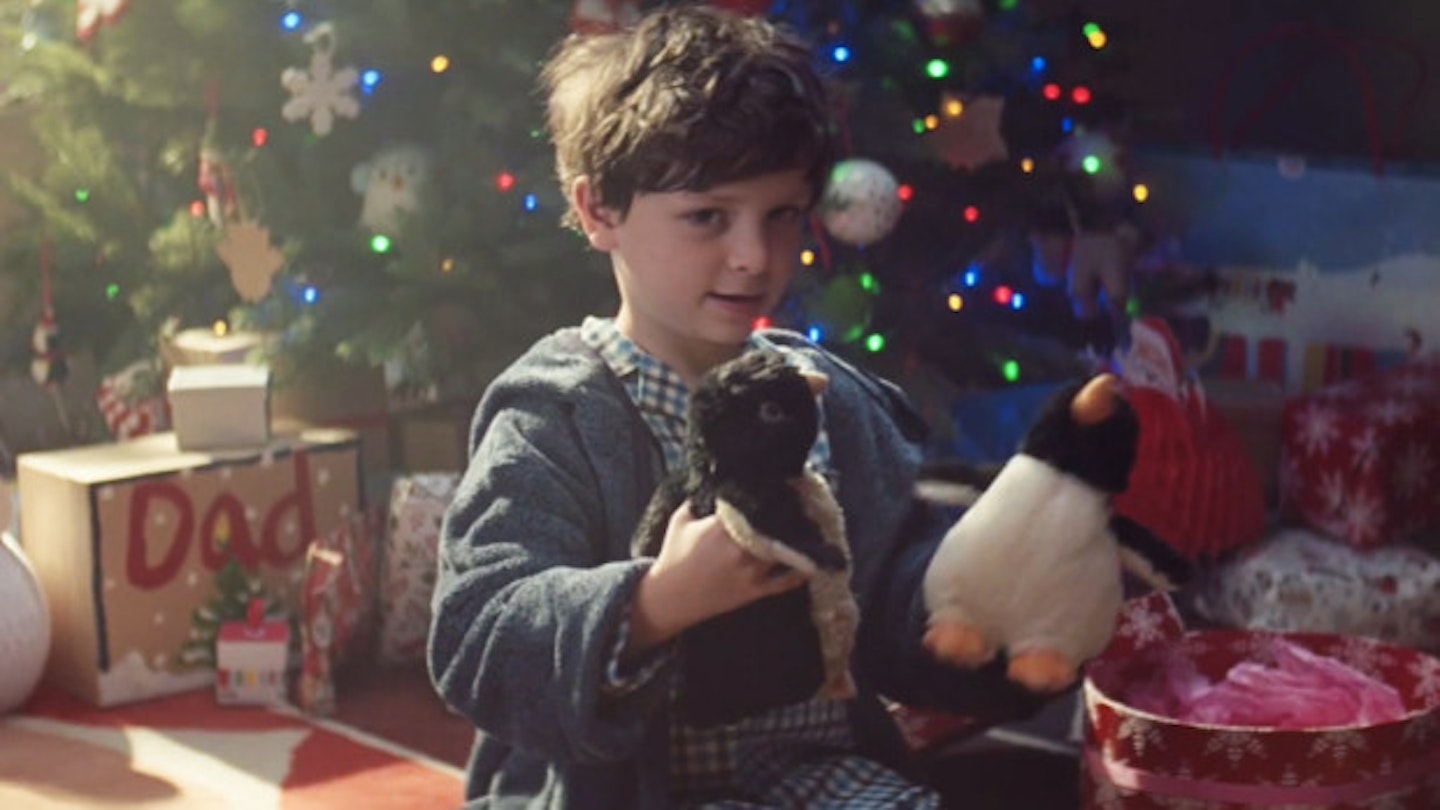The John Lewis advert, now (well, since 2012) widely believed to be the first milestone of the advent of Christmas, has landed. Featuring Tom Odell crooning over a cover of John Lennon’s Real Love, it follows a little boy throughout his year in the run-up to Christmas. We know you know it’s got something about penguins in it, but we’d better not spoil its cutesy-whimsy for you so here it is:
Now you’ve watched it and got the spoilers, it features a little penguin-obsessed boy who has a CGI penguin as a mate. They go on adventures together, eat food together, read books, play puzzles and generally lark around together, doing all the sorts of things kids did before the GameBoy was invented. Soon, though, the boy realizes that the penguin is getting a bit randy and wants to find love. So it’s much to the boy’s (and the penguin’s!) joy when he sees that this year’s Christmas present is…a penguin! And then his mum walks into him opening the presents and you realise that the penguins are just fluffy ones. Fluffy ones that command £95 IRL from your nearest John Lewis.
Anyway, we wanted to know why Christmas adverts are such a big thing, why they vibe off of the idea of a merry jolly childhood and what there is to gain from John Lewis making an advert like this. So we spoke to a childhood and stress psychologist (what’s a more stressful time than Christmas?) Dr Caroline Schuster to get some answers and then develop our own Christmas message for each.
We had loads of make-believe friends when we were younger – it’s totally ok to have them, right?
With the advent of different types of toys for children, it’s actually great for kids to have an imagination.
(The Christmas message: daydream a lot)
Do kids these days – with iPads and computers and everything - still make people up? Or is this just nostalgia to a better time before, when we were kids?
Some children do but they have many more distractions these days. Not only do they have all the IT stuff and electronic-based activities (which are fine as long as they are supervised). But being allowed unscheduled downtime, time to be bored – this is when the creativity and imagination side comes alive. We’re definitely seeing less of that these days, in the long term kids are a lot more stressed.
(The Christmas message: chill the fuck out. That time drunkenly staring into the space above the wall while everyone watches a crap Christmas 'special' is time well spent)
Is it normal for the kid to be acting out these sexual desires through the toy penguins?
Boys are generally a bit behind girls when it comes to thinking about sexual behaviour. Overall kids are thinking about this stuff a lot earlier, though. The fact the boy is showing nurturing behaviour is really good.
(The Christmas message: we all clacked our Barbies together when we were kids making them pretend to have ‘sex’ and it’s ok. We’re ok.)
This seems to be the first John Lewis advert with a black couple in, how important is it for people to see themselves reflected in adverts?
We always go on in Britain about being multicultural but it’s never quite reflected in our TV, so yes, it’s important and very good.
(The Christmas message: wanting to feel some sort of festive cheer in the coldest months transcends races and creeds and colours. It's just not everyone calls it 'Christmas')
Why do big brands appeal to the nostalgia for our younger selves to sell products?
Companies have psychologists in their ad departments and that time of year is based around family and children and those basic values which rings true with consumers.
(The Christmas message: behave like a massive child, eat lots, forget to brush your teeth and raid your parents’ booze cabinet)
What emotion are the John Lewis adverts trying to make us feel?
I would suspect they’re trying to push forward physical rewards like softness and comfort food – things that are related to family-based festivities.
(The Christmas message: eat a lot, it’s what capitalism wants)
Why do we love the John Lewis adverts so much?
We’re drawn to things about near-universal values and spending time with families so it’s a great opportunity for big companies to get people through the door.
(The Christmas message: every big company will have its own Christmas advert, and you might not have to spend a lot of money in store in return)
** Follow Sophie on Twitter @sophwilkinson**
This article originally appeared on The Debrief.
